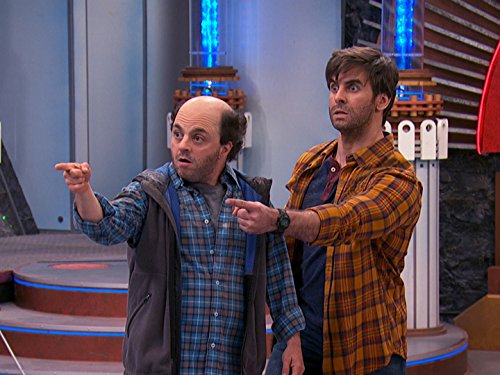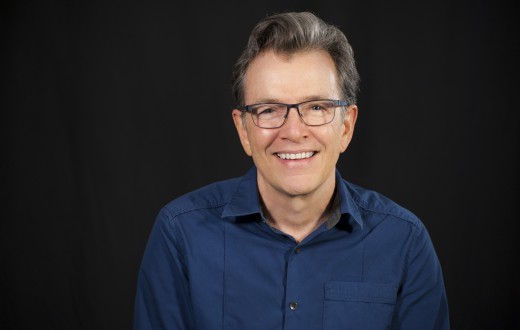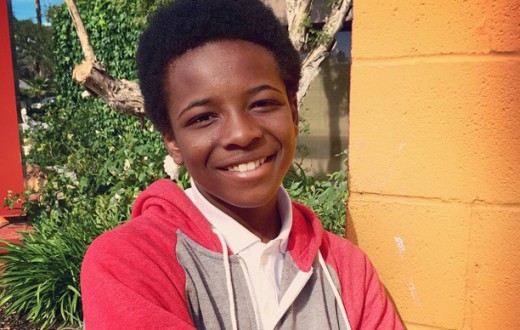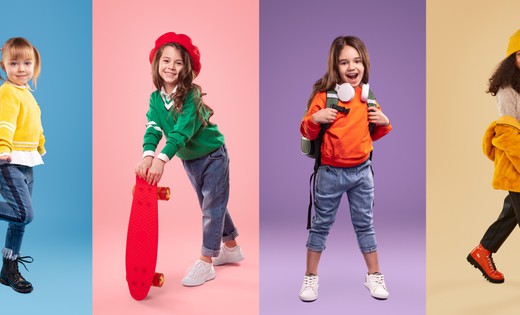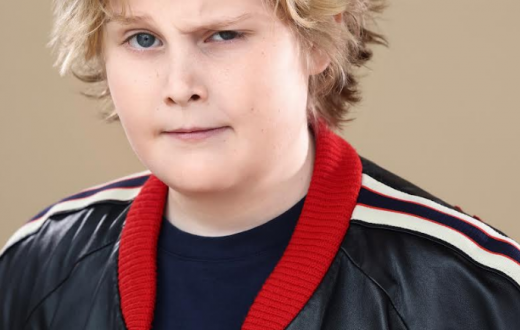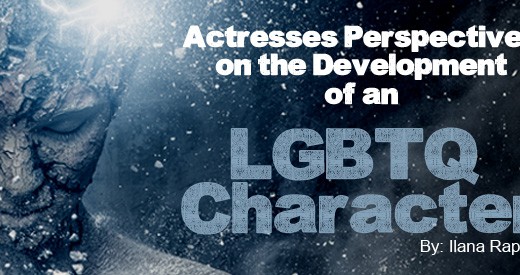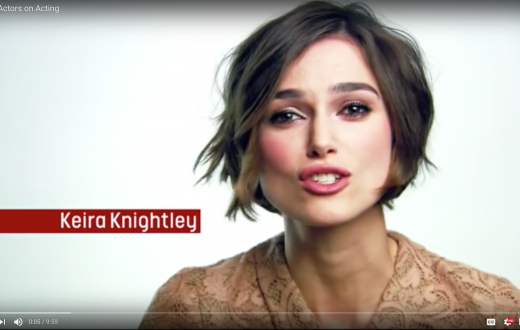This interview with Michael D. Cohen was conducted prior to the SAG-AFTRA strike.
Meet Michael D. Cohen, actor and passionate LGBTQ+ advocate, best known for his captivating portrayal of Schwoz in Nickelodeon’s beloved series Henry Danger and its successful spinoff Danger Force. Beyond his on-screen accomplishments, Michael is the driving force behind the Michael D. Cohen Acting Studio, a platform he founded to nurture aspiring actors. Through his multifaceted career and unwavering dedication to advocating for trans youth, Michael D. Cohen continues to inspire countless individuals while fostering a more inclusive and diverse industry.
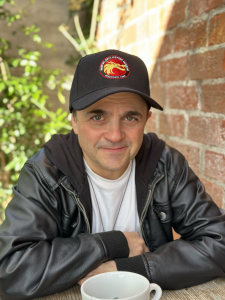
You play Schwoz on Nickelodeon’s Henry Danger and its hit spinoff Danger Force. How did you develop the accent for your character?
I had this weird Eastern European accent that I had done for My Name is Earl as an Albanian prisoner of war who was being tortured by Danny Glover. So I used that as a foundation, and then, as the first season of Henry Danger moved along, I added in some Swedish, Spanish, and Israeli pronunciations. I wanted it to come from the character so it was a fun, organic process.
Was the accent your idea or the production’s idea?
The audition called for an accent, but they didn’t say what kind of accent. It came from the writers and casting passed that info along. Schwoz was originally written as an alien. There was also a kind of Jewish sensibility about him so it made sense to me that his accent would be Eastern European.
What aspects of Schwoz do you find most interesting or enjoyable to portray?
I love his child-like innocence along with his odd customs, questionable judgment, and love of dance. Some of my favorite scenes to shoot are between Schwoz and Ray. They’re two misguided adult children.
With Danger Force, you’ve directed a handful of episodes. What sparked your interest in directing?
Directing feels like second nature to me. I used to write and direct sketches as a kid in school and at summer camp, so it’s something I’ve always done. But it’s also the leadership component that I like. Collaboration is exciting and comes easily to me, as does articulating a creative vision. I have a lot of experience in this industry and on set, so it all just comes together in this role. When I’m just acting and not hired in the role of director, I find myself on set having to remind myself to stop thinking like one.
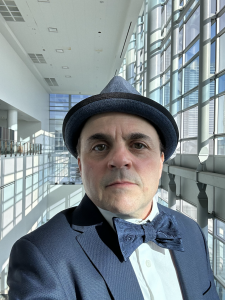
How did you approach the production to let them know you wanted to direct?
I just went to our Nickelodeon network executive and told him that I wanted to throw my name in the hat to direct. It took a year or so, but it happened.
Did you go to any formal directing classes?
I didn’t have to go through a training program. The network didn’t give me any pre-requisites, I appreciated their trust and wanted to make sure I delivered. I shadowed as many directors as I could, studied, and I sat in with the editors to get a good sense of what they needed for shots. The editors are really the best directing teachers because it’s in the editing room that your work shows itself for what it is. A director can make their work harder or easier. You want to make it easy for them. They work directly with the showrunners and that’s where you’re assessed.
How did your fellow castmates / crew members react to you directing them?
They were so supportive! I had been on Henry Danger for five years already and so we had a great relationship.
You’ve played diverse characters throughout your career. How do you approach character development and bring authenticity to your performances?
Like anything, I start with the truth and the story. I look for opportunities to be specific in every line. And it all has to come from the body, not the head. Sometimes the character just comes through me right away and other times I have to experiment with different interpretations until I find what works.
In addition to acting, you’re also an LGBTQ+ / Trans Advocate. What does your work as an advocate entail?
It depends. It’s mainly interviews like this, getting on TV and talking about it. That sort of thing. When we were in production, I did the Trans Youth Acting Challenge, and I asked Nickelodeon to partner with me. So that was very much about getting this large corporation to provide their resources and help make this project happen. In other situations, I volunteer with non-profits like PFLAG for instance to create workshops or other services for kids and families. They helped me launch the Never Alone series for families impacted by anti-trans legislation, and connected me with national organizations like Human Rights Campaign, The Trevor Project, Equality Federation, and others. Sometimes, advocacy just means posting these messaging from these organizations on my social media. I do whatever I can to show up for trans youth and families.
How do you balance your acting career with your advocacy efforts?
Advocacy is pretty much self-driven. So I do get requests for appearances or posts, but mostly it’s something that I initiate. But there were times on Danger Force where I’d be going back and forth between my dressing room and the stage on my phone answering emails or talking to someone to organize whatever project we were working on. It’s a good thing I had been doing my character for so long and knew him inside out. It made juggling my worlds a little easier.
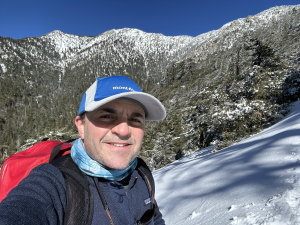
What points do you want to get across with regard to your advocacy work?
The main point right now is awareness and education. I want people to know that gender dysphoria is something that someone is born with. That means that every trans adult that made it this far was a trans kid. I encourage people to do research and look at the facts, which is that every professional medical association and expert agrees that gender affirming care is life-saving. It was for me and for everyone else I know who has been lucky enough to have needed and received it. Also, I want people to know that kids do not get surgeries or sex hormones. Their treatment is all about emotional support and allowing them to choose their clothing and name and pronouns. That’s all fully reversible, so all this legislation is based on lies. It’s just political posturing.
So education is part of it. The other part of it letting kids and families know what resources are available and that people and organizations are fighting for them. I want trans kids to know that they are seen and valued despite the hurtful backlash that is occurring.
You transitioned 20+ years ago, so the people you currently work with never knew you before then, and therefore they treat you the same as they always did after you made your disclosure public. When you were transitioning, what were you working on and how were you treated? Do you think you would have been treated differently if you had transitioned later?
When I transitioned, no one had ever really heard of this. They were familiar with women on Jerry Springer and that was it. They had definitely never known a man of trans experience. I was lucky in that the people around me were generally kind and supportive. They saw that I was much more “me” as a man – people can read authenticity and they knew it was right for me. I was working as an actor before I transitioned and was doing pretty well. I took a few months off, then came back and started auditioning as a man. It was pretty amazing.
If I had transitioned later, I’m not sure how it would have gone. I’m glad I did it when I did though. I had the opportunity to realize my truth with no role models or examples out there. It made it a kind of pure experience for me. But it also showed me how important it is to have representation. It would have been easier in that I could have a reference point for the process, and I wouldn’t have had to educate the people in my life as much. What I’m really happy about is that, since transitioning, I have always played cis male roles. I did play an intersex character and that was great, but other than that, all my work has been non-trans men. I like that.
Sometimes there’s confusion about people who have transitioned. People want to know if they’re gay or straight. How does that work?
Well, your question has two parts – one is about “what’s the difference between gender and sexuality” and the other is “who’s responsibility is it to educate”. Let’s look at the second question first. I think it’s the asker’s responsibility to educate themselves. And if they can’t find the answers on a simple Google search, then you approach someone you have a relationship with and you say “Hey, you know I want to understand your experience better. Would it be okay if I asked you some questions about it? I googled but still came up empty. And I realize it’s not your responsibility to educate me so if you’re not comfortable with it, that’s cool.” And don’t treat them like an exotic object. Share your own experience and how it relates to this. You’re asking someone to be vulnerable about an intimate part of their life. You can offer up your own vulnerability too and that will make it a shared experience rather than just drumming up information. The main thing to understand is that just because someone is transitioning – and yes, that has to be a public thing because they are presenting differently to the world – it doesn’t mean they owe the world an explanation. Most other people, when they make big changes or realize a big truth within themselves, have the luxury of choosing whether to keep it private or not. Gender expression inherently doesn’t offer that.
So to your first question… I have a question which is, why does it matter to the asker who someone is attracted to? The question behind the question is really “how do I relate to you”. Essentially, when we don’t understand something like this it can be threatening because you wonder “can my gender or my sexuality just change”. It can be scary and so that’s where fear and hate can start. As I see it, we are born with our gender and romantic orientation in place. Our true gender may not align with our anatomy, and who we’re attracted to may deviate from what’s expected of us. But it’s part of who we are. For some it’s fixed, for some it can be fluid. But even fluidity can be fixed – meaning that’s just part of who someone is. And behavior can change as people discover more deeply who they are authentically. I would say to someone asking this question, delve deeper into why you’re asking it and why it’s important. Then realize that gender and romantic orientation are two separate entities and develop independently. A lot of people who have transitioned make a stop in gay/bi/lesbian labels before realizing that we’re just straight people in the wrong body. Then there are those who are genuinely gay after transition. It seems complicated, but it’s not really.
And since the readers here are mainly actors, I like to take this kind of conversation back to authenticity. That’s what it’s all about. The more we can access and realize our essence – who we are at our very core – the more freedom we will have in our craft. There are some aspects of ourselves that are just truth and are non-negotiable – like gender and romantic attraction. Awareness gives us the power to grow. Self-revelation can be scary, but ultimately it’s our ticket to freedom.
With everything going on in the United States, are there any states you will not visit?
I will not go out of my way to go to any of the states that are passing anti-trans or anti-LGBTQ legislation. I just wouldn’t choose to be in that environment. The Human Rights Campaign put out a travel advisory warning for LGBTQ+ individuals to not travel to Florida.
You’re the founder of the Michael D. Cohen Acting Studio. What, in your opinion, makes you an authority to be an acting coach?
I have over 30 years experience in the entertainment industry, am a working actor, and have a proven approach that I share with students that results in booking jobs. My approach is holistic in that it’s very much focused on how to connect the mind and body while finding more fulfillment and fun in the process. I have taken a lot of acting classes – a few were good, but many were not. I teach the way I want to be taught.
Also, I have to say that my trans experience has gifted me a profound understanding of lived authenticity. I know what truth feels like in the body. I also know what a lie feels like. All of us know that of course, trans or not, but the trans experience is one that can make living authentically or not a matter of life and death. And that’s real. So we just know this conflict on a very deep level. We do our best as actors when we connect with our deepest authenticity. I have the language and experience behind that.
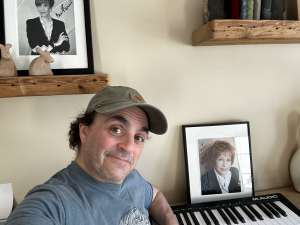
Why did you want to open the studio? How did you find your first students?
I have always wanted to teach, but I didn’t want to do it until I felt I was ready. It meant that I had to get to a place in my own career where I felt like I had something to offer and that I would be fulfilled enough in my own acting career that I could be fully on board to support my students’ success. The worst is when you find a teacher that’s just a frustrated actor. I didn’t want to be that. So, I waited until I felt benevolent about it. I did a Masters in Education – specifically Adult Education – to create transformative classes for performers. I was also interested in the role of director as educator, and I tie that relationship in when I’m teaching. I started as a theatre major then moved into science and got my undergrad in cell biology. I love learning about how the body works and so now I feel equipped to help actors connect with their bodies and use their minds to shape their work.
What’s next for you?
I’ve developed two television series and am ready to take those out into the marketplace as soon as I can. My solo show was supposed to go up in May 2020 but then this virus thing happened… so I am looking at re-launching that next year. I’m writing a book on acting called The Art of Specificity as well as continuing to teach acting classes and workshops both in person and online.

